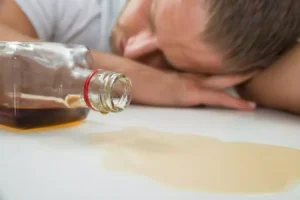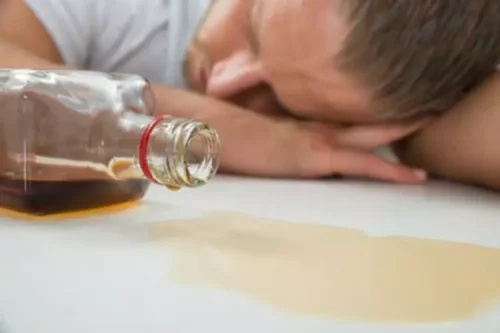Sober living
Benzo Detox: What to Expect During Withdrawal Florida Mental Health Services

Studies show that symptoms of decreased appetite and weight loss are highly common in those who take benzos in large amounts prior to quitting. However, loss of appetite can also be triggered by other benzo withdrawal symptoms, such as depression, anxiety, and nausea. Benzos work by slowing down the central nervous system, which in turn, can slow down digestive processes to suppress appetite and make people less hungry. Benzo withdrawal symptoms occur because this drug creates a high level of dependency in the user. It works to change the function of the neurotransmitter GABA in the brain.
- This allows your body to adjust gradually to lower doses of benzos without experiencing the shock of quitting cold turkey.
- By equipping yourself with knowledge and the right support systems, you stand a better chance of navigating the challenging journey of detoxification safely and successfully.
- If you are taking more than prescribed, however, it may be time to get some additional help.
- From excessive screen time to disrupted relationships, take control of digital dependence.
Why Personalized Treatment Plans Lead to Better Outcomes
Benzodiazepine withdrawal occurs whenever someone suddenly stops taking benzos. The body comes to rely on benzos for the modulation of GABA (Gamma-Aminobutyric Acid), a neurotransmitter responsible for mood, stress, and sleep regulation. As a result, when someone attempts a benzo detox, the body struggles to process GABA adequately on its own. The journey to recovery from heroin addiction is not easy, but it is possible.

How to Prevent Relapse After Cocaine Detox
- For those individuals who may have had seizure histories or took high doses over long periods, they stand at greater risk for experiencing seizures when withdrawing from benzodiazepines.
- When a person stops using benzos even for a short period of time, they’re sure to feel some significant changes if they have a dependency.
- These symptoms manifest differently for each individual, creating a unique and often unpredictable withdrawal experience.
- Thus, when they experience adverse withdrawal symptoms, the immediate availability of benzos may tempt them into breaking their detox to escape their discomfort.
Depending on your situation, your doctor may think it best to prescribe very small amounts of medication at a time. This will prevent you from altering the taper, but it might mean frequent trips to the pharmacy. Benzodiazepine withdrawal can be managed with a gradual dose reduction, which will cause milder symptoms that come and go in waves. Discover the essential steps to sober living, from acceptance to building a support network. Uncover the impact, resources, and strategies for overcoming emotional eating.
- Lower amounts of serotonin are linked to aggression, but many times, these feelings are only temporary, and will gradually regulate as you continue recovering from benzo dependence.
- Peer influence, particularly during adolescence, is a strong factor leading to substance abuse.
- Compared to other drugs, the period of time it takes for an individual to develop a benzo dependence is rather short.
- This approach helps you learn to tolerate discomfort and distress, instead of avoiding it, and choose to live according to your values.
- Benzodiazepine withdrawal symptoms can manifest in a variety of ways, and symptoms can vary significantly from person to person.
- Without it, they may have extreme levels of anxiety or irrational thoughts.
Cocaine Detox 101: Symptoms, Challenges, and Support Options”

Known as benzodiazepine drugs, benzodiazepines constitute a category of psychoactive drugs that amplify the effect of GABA, or gamma-aminobutyric acid, benzodiazepine withdrawal in the brain. This neurotransmitter is critically involved in diminishing neuronal activity which contributes to feelings of tranquility and relaxation. At BIG SKY Treatment, we believe in your capacity for healing and growth. Our compassionate team is dedicated to empowering you with the tools and strategies you need to overcome benzodiazepine withdrawal and reclaim your life. While the protracted nature of benzo withdrawal can be discouraging, it’s important to remember that recovery is possible.

The Warning Signs of Addiction in Teenagers

Strategies like ongoing therapy and participation in support groups provide individuals with tools to navigate challenges and triggers, significantly reducing the risk of relapse. Cognitive Behavioral Therapy (CBT) is often utilized to address psychological aspects of dependence. Many of the benzo withdrawal effects are “rebound” symptoms or symptoms that caused the need for benzodiazepine treatment. They include anxiety, sleep disturbances, panic attacks, trouble concentrating, heart palpitations, and excessive sweating. If someone wishes to undergo a gentler withdrawal process, we may prescribe a tapering dosage of Ativan.
Overall effects on everyday life
- Medical professionals typically recommend incremental dose reductions that let the body adjust gradually.
- Engaging in a benzodiazepine detox program is a crucial step towards reclaiming one’s life from dependence on these substances.
- The medication Romazicon (flumazenil) is sometimes used off-label for withdrawal symptoms.
- If your reasons for quitting benzodiazepines are that you were misusing them or unable to control your use, then you may require further substance use treatment.
- Benzo detox is normally performed on a slow tapering schedule to help minimize and reduce the severity of withdrawal symptoms.
Think of the nervous system as a complex electrical grid that’s grown accustomed to a specific power supply. When that supply is suddenly altered or removed, the entire system experiences significant disruption. If you’ve used benzos for several years or used a significant dosage of them for several months, medical detox can be necessary. If you try to stop taking the drug for a day or so and begin to feel you need the drug at a level you can’t easily control, it’s also beneficial to turn to detox. When a person stops using benzos even for a short period of time, they’re sure to feel some significant changes if they have a dependency. Within four to six hours of stopping the drug, a person can become agitated and anxious.
Caught Up In the Heroin Epidemic

Numerous risk factors can make an individual susceptible to heroin dependency. A family history of substance abuse increases the likelihood of an individual developing substance abuse problems, including opioid dependence and heroin addiction. Genetic predispositions, including specific genes such as OPRM1 and BDNF, have been linked what is alcoholism to an increased susceptibility to drug addiction. There exists a multitude of approaches to mitigate withdrawal symptoms during the course of withdrawing from benzodiazepines. We will delve deeper into each specific coping mechanism subsequently.
